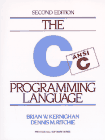 |
This is probably my favorite fantasy book of all time, over than The
Lord of the Rings or the Earthsea trilogies. It is an adventure set in
"a China that never was" and I like it for so many reasons, I have to
think it is nearly a perfect fit for my image of the ideal
book. First, it induces a great "sense of wonder", by its use of the
ancient Chinese culture throughout (I don't know if it's authentic,
but it certainly feels that way). There is a wonderful politeness, a
sense of extreme civilization and formality bestowed by a thousand
years of recorded history - a different history than most Western
readers are probably used to. Second, it has a glorious, magical,
mystery as its core, that is enjoyable to solve with the characters
not only the first time, but again and again on each re-reading. It is
fantastical, somehow without being unbelievable. It has wonderful
characters, from the heroes, the immensely sympathetic Number Ten Ox,
and Master Li Kao ("a sage with a slight flaw in his character"), to
the villains and even the minor characters, each given a realistic,
memorable, personality. It is funny, without making an effort to be;
it achieves its humor by not taking itself too seriously, able to
laugh at the characters, the plot, and the world, all without becoming
a farce and breaking the reader's suspension of disbelief and sense of
wonder. Finally, like the programming books I recommend above, or a
piece of poetry, it is concise, tight, with a feeling of not
a wasted sentence, paragraph, or event. There is an idea on every
page. Characters and events that have seemingly more than adequately
advanced the plot or served their time on the stage, come back again
and again to develop even further, marvelously.
The sequels to the book, The
Story of The Stone, and Eight
Skilled Gentlemen, carry on with new adventures of Number Ten
Ox and Master Li Kao, but unfortunately are not as good as the
original. They read as if the author spent less time on writing the
sequels than on Bridge of Birds - while the first seemed as
if he went over and over it, until nothing more could be made better,
no idea could be added, and nothing wasted was left that could be cut
away, these sequels feel as if half of the original quantity of ideas,
characters, and plot development are spread among the same number of
pages, and the rough edges, of plot and character, are still left
on. They're not bad books in themselves - if you loved the
original, you won't regret reading the sequels - but you might be
disappointed that they are not as good. Barry Hughart hasn't written
anything else.
Instead, you might want to try Tim Powers's The Anubis Gates, which has similar qualities of plot
complexity, tightness, and historical, fantastical, "sense of
wonder," and adventure, this time dealing with Victorian London and a
bit of Egypt. It is a magic and time travel story, so the recurrence
of certain characters and events in the plot might seem just a little
more forced, but is still handled well. The main reasons in which I
see it as less than Bridge of Birds is that the characters
are less sympathetic, possibly because they are less fully fleshed
out; and the sense of humor is a bit unpleasantly black. But that just
makes it less than perfect, The Anubis Gates is still a very
good book.
|


 These are the books that I recommend to my friends and acquaintances,
books that I have enjoyed reading and using in my work and spare
time. GeoCities doesn't allow many other Web gimmicks on their pages,
but they have signed a deal with the Amazon.com online bookstore, so you can actually buy these books
through this page by clicking on each book cover. The click doesn't
commit you, merely takes you to the Amazon.com page for that book,
where you can read other Amazon readers' reviews, see the price, and
then order. Or, feel free to just read the book list and
recommendations, and buy them from another source - the links are
mostly for the convenience value, I don't expect to actually get my
small percentage for selling them through this page often.
These are the books that I recommend to my friends and acquaintances,
books that I have enjoyed reading and using in my work and spare
time. GeoCities doesn't allow many other Web gimmicks on their pages,
but they have signed a deal with the Amazon.com online bookstore, so you can actually buy these books
through this page by clicking on each book cover. The click doesn't
commit you, merely takes you to the Amazon.com page for that book,
where you can read other Amazon readers' reviews, see the price, and
then order. Or, feel free to just read the book list and
recommendations, and buy them from another source - the links are
mostly for the convenience value, I don't expect to actually get my
small percentage for selling them through this page often.





